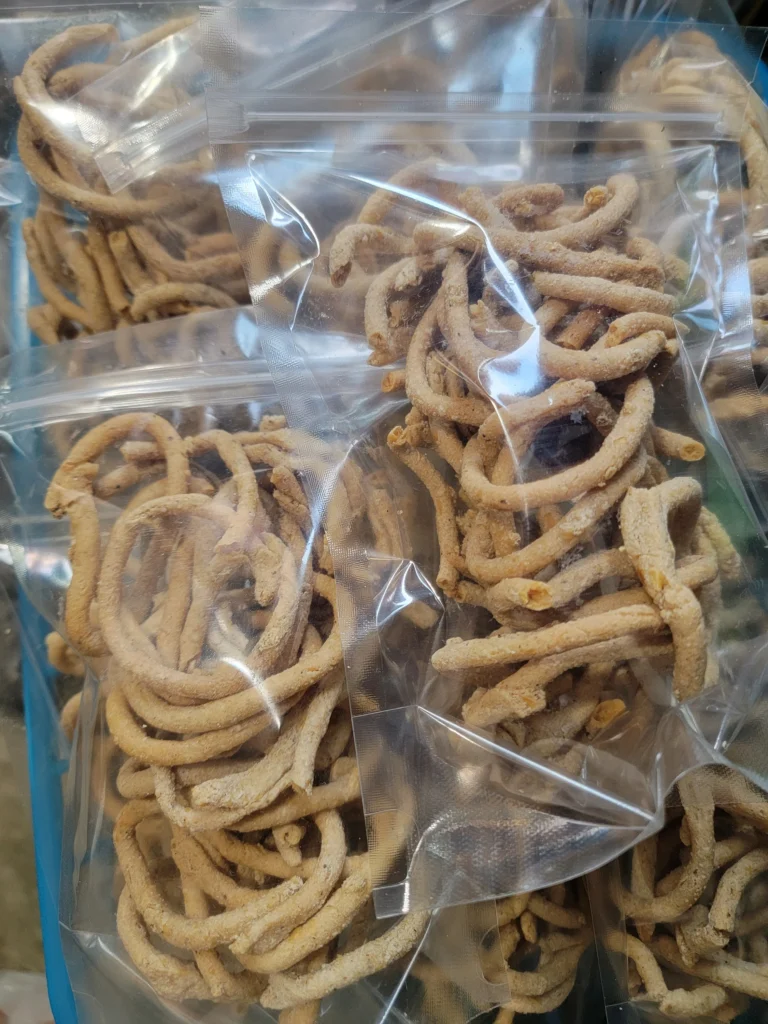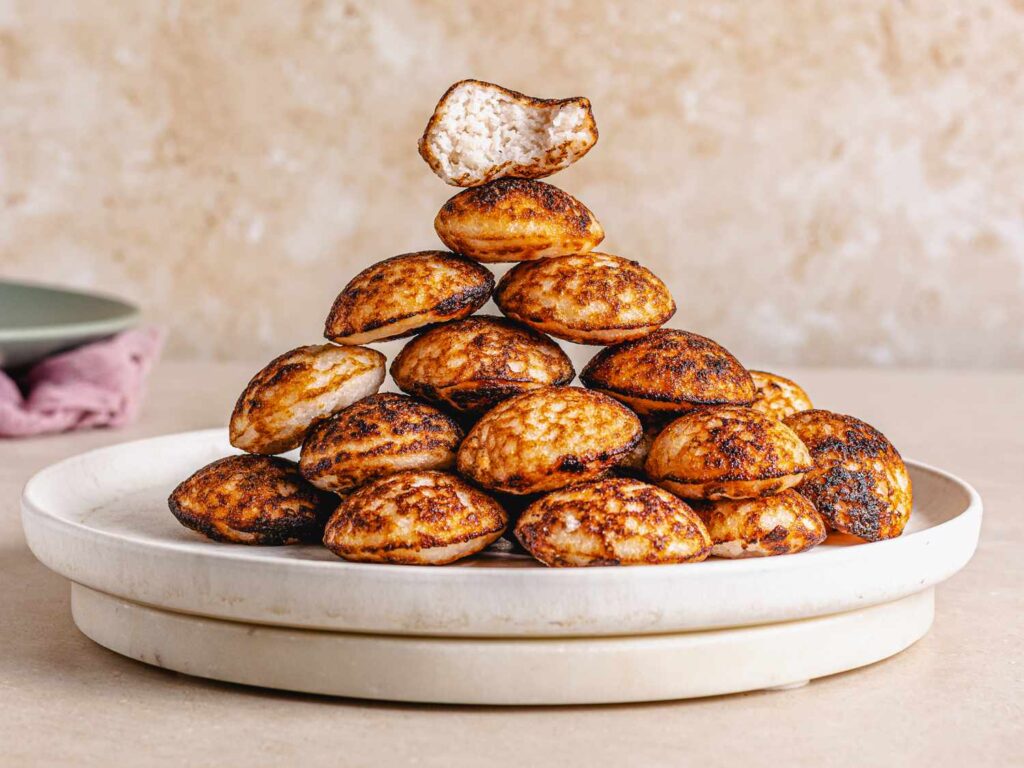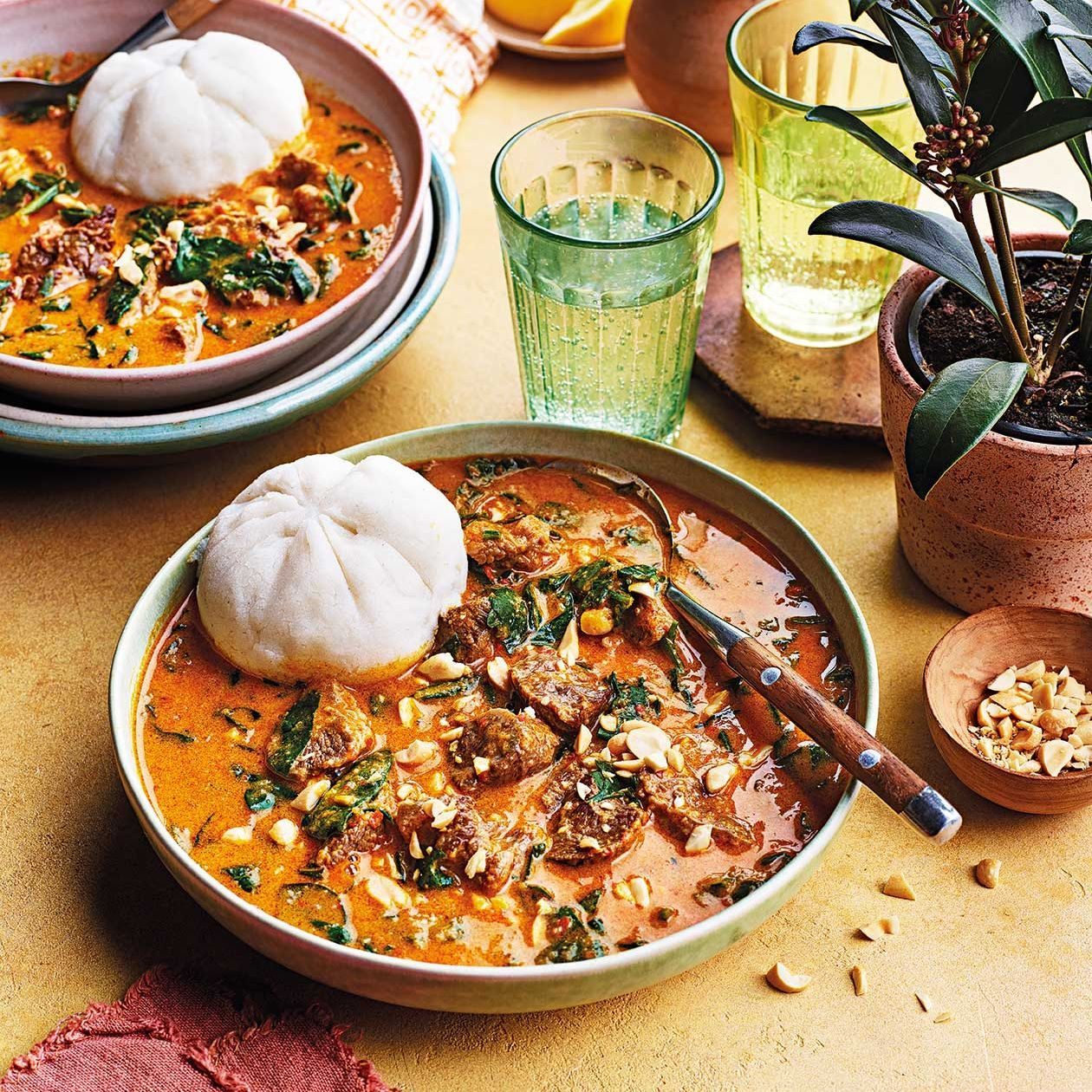Explore Dambu Nama, Masa and Kokoro Abeokuta – Popular Snacks in Nigeria
Dambu Nama is a popular Nigerian snack, particularly in the northern region, that is made from spiced and dried shredded beef. It is a flavorful and protein-rich snack often enjoyed on its own or as a side dish. Here’s a basic recipe for making Dambu Nama:
Dambu Nama Recipe:
Ingredients:
- 500g shredded beef
- 2 tablespoons vegetable oil
- 1 large onion, finely chopped
- 2-3 cloves of garlic, minced
- 1 teaspoon ginger, grated
- 1 teaspoon cayenne pepper or Scotch bonnet powder (adjust to taste)
- 1 teaspoon smoked paprika
- 1 teaspoon ground cumin
- 1 teaspoon ground coriander
- Salt to taste
Instructions:
- Prepare Shredded Beef:
- If you haven’t purchased pre-shredded beef, you can shred beef into thin strips using a knife.
- Cook Shredded Beef:
- In a pot or pan, heat vegetable oil over medium heat. Add the shredded beef and cook until browned.
- Add Aromatics:
- Add chopped onions, minced garlic, and grated ginger to the browned beef. Cook until the onions are translucent.
- Spice it Up:
- Incorporate cayenne pepper or Scotch bonnet powder, smoked paprika, ground cumin, ground coriander, and salt. Adjust the spices to your preferred level of heat.
- Cook Until Dry:
- Stir well and continue cooking until the mixture is dry. This allows the spices to infuse into the shredded beef.
- Cool Down:
- Allow the Dambu Nama to cool down completely.
- Serve:
- Once cooled, Dambu Nama is ready to be served. It can be enjoyed as a snack or paired with other dishes.
Tips:
- Adjust the spice levels to suit your taste preferences. You can increase or decrease the amount of cayenne pepper or Scotch bonnet powder accordingly.
- Ensure that the shredded beef is well-cooked and the mixture is dry for optimal flavor and texture.
Dambu Nama is a delicious and savory snack that adds a burst of flavor to your palate. Enjoy this traditional Nigerian treat!
Kokoro Abeokuta – A Snack from the Western part of Nigeria
Kokoro Abeokuta is a popular Nigerian snack, particularly associated with the Yoruba people. It is a crunchy, deep-fried snack made primarily from maize or corn flour. Here’s a basic recipe for making Kokoro Abeokuta:
Kokoro Abeokuta Recipe:
Ingredients:
- 2 cups corn or maize flour
- 1/2 cup sugar (adjust to taste)
- A pinch of salt
- Water (as needed)
- Vegetable oil for deep frying

Instructions:
- Prepare Dough:
- In a bowl, combine the corn or maize flour with sugar and a pinch of salt.
- Add Water:
- Gradually add water while mixing the ingredients to form a smooth, firm dough. The consistency should be similar to that of a firm pastry dough.
- Shape the Dough:
- Take small portions of the dough and roll them into cylindrical or round shapes. You can also shape them into thin sticks or any desired form.
- Heat Vegetable Oil:
- In a deep pan or fryer, heat vegetable oil for deep frying. Ensure the oil is hot but not smoking.
- Fry Kokoro Abeokuta:
- Carefully place the shaped dough into the hot oil. Fry until they turn golden brown, turning occasionally for even cooking. This usually takes about 3-5 minutes.
- Drain Excess Oil:
- Use a slotted spoon to remove the fried Kokoro Abeokuta from the oil and place them on a paper towel-lined plate to drain any excess oil.
- Cool and Serve:
- Allow the Kokoro Abeokuta to cool completely before serving.
Tips:
- Adjust the amount of sugar based on your sweetness preference.
- Experiment with shapes to add variety to your Kokoro Abeokuta.
Kokoro Abeokuta is a delightful and crunchy snack that is often enjoyed on its own or paired with other treats. It is a popular street food in Nigeria, and its name is derived from Abeokuta, a city in southwestern Nigeria. Enjoy making and savoring this traditional Nigerian snack!
Explore Masa – A Nigeria Rice Cake
Masa is a popular Nigerian street food that originated from the northern part of the country, particularly among the Hausa people. It is a type of rice cake or rice dumpling that is typically served with a spicy pepper sauce. Masa is made from fermented rice batter and has a slightly sour taste. Here’s a basic recipe for making Nigerian Masa:
Nigerian Masa Recipe:
Ingredients:
For Masa Batter:
- 2 cups rice (preferably short-grain)
- 1 cup cooked rice (for fermentation)
- 1 teaspoon yeast
- Water (for blending)
- Salt to taste

For Pepper Sauce:
- Scotch bonnet peppers (to taste)
- Onion (1 medium-sized)
- Tomatoes (2 medium-sized)
- Salt to taste
- Vegetable oil
Instructions:
For Masa Batter:
- Soak Rice:
- Soak the rice in water for about 6 hours or overnight.
- Blend Rice:
- Drain the soaked rice and blend it with cooked rice, yeast, and enough water to make a smooth batter. The consistency should be similar to pancake batter.
- Fermentation:
- Allow the batter to ferment for at least 8 hours or overnight. This helps develop the characteristic sour taste.
- Add Salt:
- After fermentation, add salt to the batter and mix well.
- Preheat Griddle or Pan:
- Grease a griddle or non-stick pan and preheat it.
- Pour Batter:
- Pour small portions of the batter onto the griddle to form small, round pancakes.
- Cook Both Sides:
- Cook until bubbles form on the surface, then flip and cook the other side until golden brown.
- Repeat:
- Repeat the process until all the batter is used.
For Pepper Sauce:
- Blend Ingredients:
- Blend Scotch bonnet peppers, onion, and tomatoes to form a smooth paste.
- Cook Sauce:
- Heat vegetable oil in a pan, add the blended paste, and cook until the sauce thickens. Add salt to taste.
- Serve:
- Serve the Masa with the spicy pepper sauce.
Tips:
- Adjust the quantity of Scotch bonnet peppers in the sauce based on your spice tolerance.
- You can experiment with additional spices or herbs in the Masa batter for added flavor.
Masa is a delightful and unique street food that offers a taste of Northern Nigerian cuisine. Enjoy making and savoring this traditional dish!

